His Mercies Are New Every Morning
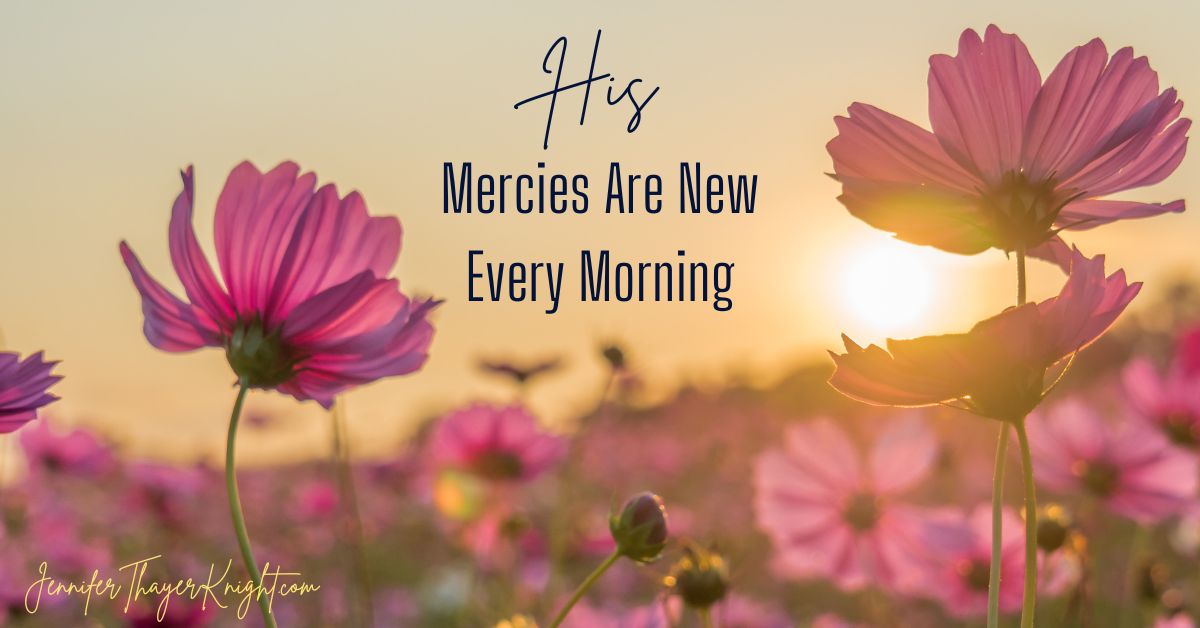
Would you rather listen than read? Listen here.
Have you ever felt a grief so strong you felt stuck? The closest I ever felt to this was losing my dad. Jeremiah felt it when his heart grieved for the people and mourned for his beloved Jerusalem. God shows up in the sorrow and offers hope. We can hold on to the truth that His mercies are new every morning.
Jerusalem Has Fallen
Raindrops fall, bringing little relief to my feverish skin. The sound of children crying out in hunger is more than I can bear. Stabs of pain fill my stomach in place of food. We are at the mercy of our enemies for any form of nourishment.
My heart pleads with God for relief, but there is none. Punishment of our ancestors’ sins hit us like fiery arrows. The screams of violated women are a sound like no other. The lengths mothers have resorted to for food is beyond understanding.
Mount Zion is desolate. My heart has grown faint. God, why have you forgotten us? Why have you rejected us? Your anger is beyond measure.
I wrote the above with words taken from the prophet Jeremiah in the fifth chapter of Lamentations. I cannot imagine experiencing what Jeremiah felt when writing this book.
My Darkest Hour
The closest I ever felt to this kind of despair was when I lost my dad. His rare illness came on strong and within nine months, he was gone. Nothing could have ever prepared my heart for the anguish I felt. I will never forget the morning after all my kids had gone to school. The house was empty, and I was trying to push through the grief that gripped my heart.
My neighbor called me and said not to worry, but my three kids had just been in an accident. They were in elementary school and were riding the school bus. A woman on her mobile phone struck the bus. They were fine, but it spurred just enough emotion within me to send me spiraling down. A few hours later, I found myself face down on the floor, drenched in sweat and tears. Never had I wept so hard before in all my life.
I laid there praying, pleading, for God to take away this pain of loss. I could not bear it and did not know how to move forward. The heaviness of the grief overwhelmed me and felt too heavy to carry. I needed God more than ever to remove the burden.
Judah’s Darkest Days
I know my pain that day did not compare to what Jeremiah felt when he wrote Lamentations, but our pain we feel is real and just as strong to us as it was for him then. Lamentations was written in one of the darkest days of Judah’s history. God had warned Israel if you do what I say and follow my commands, I will be with you. If you do not do what I say, there will be repercussions. Deuteronomy 28 lays out all the consequences.
Jeremiah lived out the wrath of the sins of Judah. God warned them through Jeremiah’s prophecies about what would come and they ignored him time and time again. Babylon came in and destroyed Jerusalem, taking most of the people captive. A few remained in the destroyed city of Jerusalem, where there was no food, little water, and their enemies ruled over them.
The Book Of Lamentations
Jeremiah wrote the book of Lamentations as five acrostic poems. The first two chapters and the last two chapters are twenty-two verses long. Our English translations miss the beauty of this. Each of the twenty-two verses starts with a letter of the Hebrew alphabet in ABC order. For example, verse one begins with the Aleph א, and verse two begins with the Bet ב, and so on.
The middle poem, chapter three, is a triple acrostic poem. Meaning the first three verses start with the Aleph א and the second three begin with the Bet ב and continues on.
What I love… As you read the third poem as you approach the middle, you find a glimpse of hope. Jeremiah is angry and hurt as he wrote these poems, but he cannot forget the hope we have in God.
Chet ח
“How enduring is God’s loyal love; the Eternal has inexhaustible compassion. Here they are, every morning, new! Your faithfulness, God, is as broad as the day. Have courage, for the Eternal is all that I will need. My soul boasts, “Hope in God; just wait.”
Lamentations 3:22-24 Voice
These three verses all begin with the Chet ח, which represents new beginnings. God’s compassions are new every morning. No matter where we find ourselves, in pain, in trials, in the murky waters of life, every day is a chance for a new beginning with God. Jeremiah knew that even in the darkest days of his life, there would still be a new beginning. Learn more about the Chet here.
Teth ט
“The Lord is good to those whose hope is in Him, to the one who seeks Him; it is good to wait quietly for the salvation of the Lord. It is good for a man to bear the yoke while he is young. Let him sit alone in silence, for the Lord has laid it on him.”
Lamentations 3:25-27 NIV
These verses begin with the Teth ט, which represent a good place. A place we find ourselves in the presence of God with a willing spirit. A place where we are open for Him to fill us. When we look to Him, even when times are hard, we can find ourselves in a good place. You know when you feel that peace that surpasses all understanding, or knowing it will all be ok when everything looks like it is falling apart. We can feel the calm in the storm when we are in a good place with God. Learn more about the Teth here.
Yod י
The final three scriptures I want to look at in this poem begin with the Yod י. The Yod teaches us to look heavenward. Jeremiah reminds us our hope is in God. When the world feels chaotic, if we look heavenward, we will find the unfailing love of God. Read more about the Yod here.
“For no one is cast off by the Lord forever. Though He brings grief, He will show compassion, so great is His unfailing love. For He does not willingly show affliction or grief to anyone.”
Lamentations 28-30 NIV
Can I pray for you?
“Lord, thank you for each person reading this. I pray for their heart. If they are in a great place, Lord, I praise you. If they are in a hard, dark place, I lift them to you. I pray they will look to you, look heavenward and they will be in that good place with you. As they carry their yoke, I pray they can rest in silence and look to you. I pray for a releasing of the heavy yoke, a releasing of what is holding them down and causing pain. I pray they see your light, your merciful light, shining in the darkness. Let us feel your presence, your mercy, your unfailing love. In Jesus’ holy name, amen.”
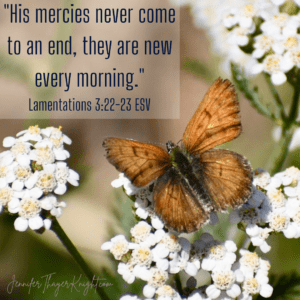


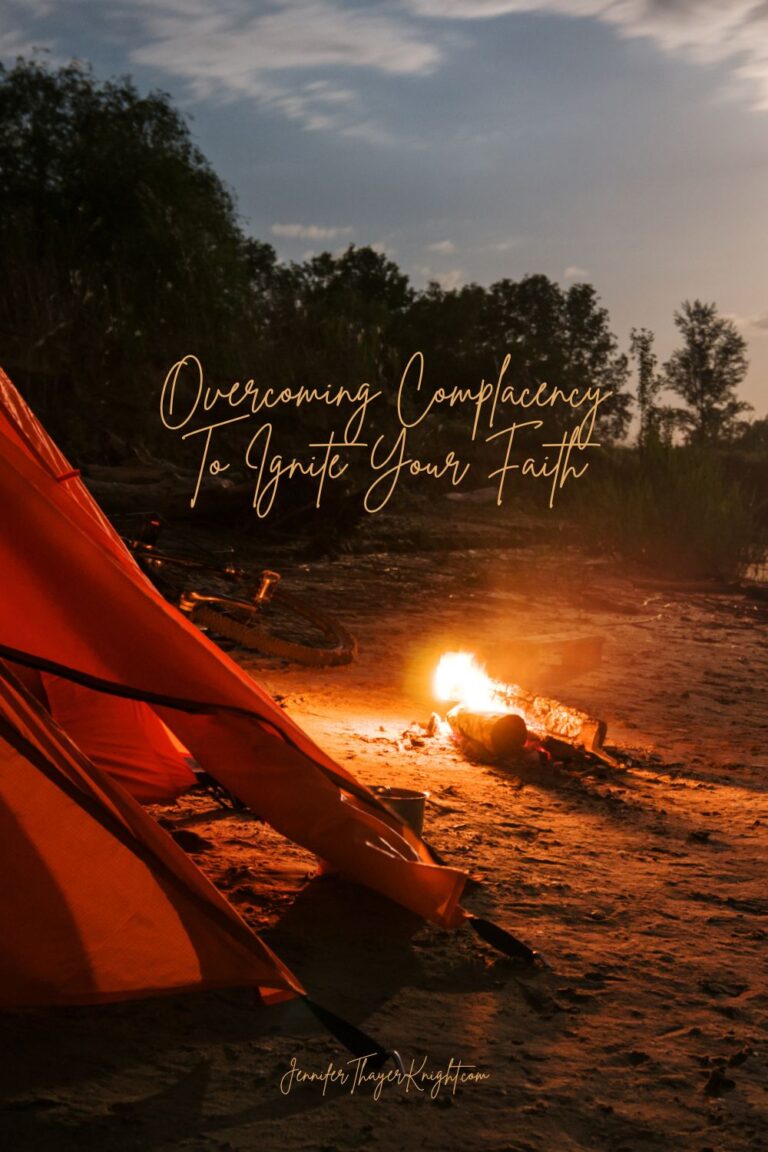
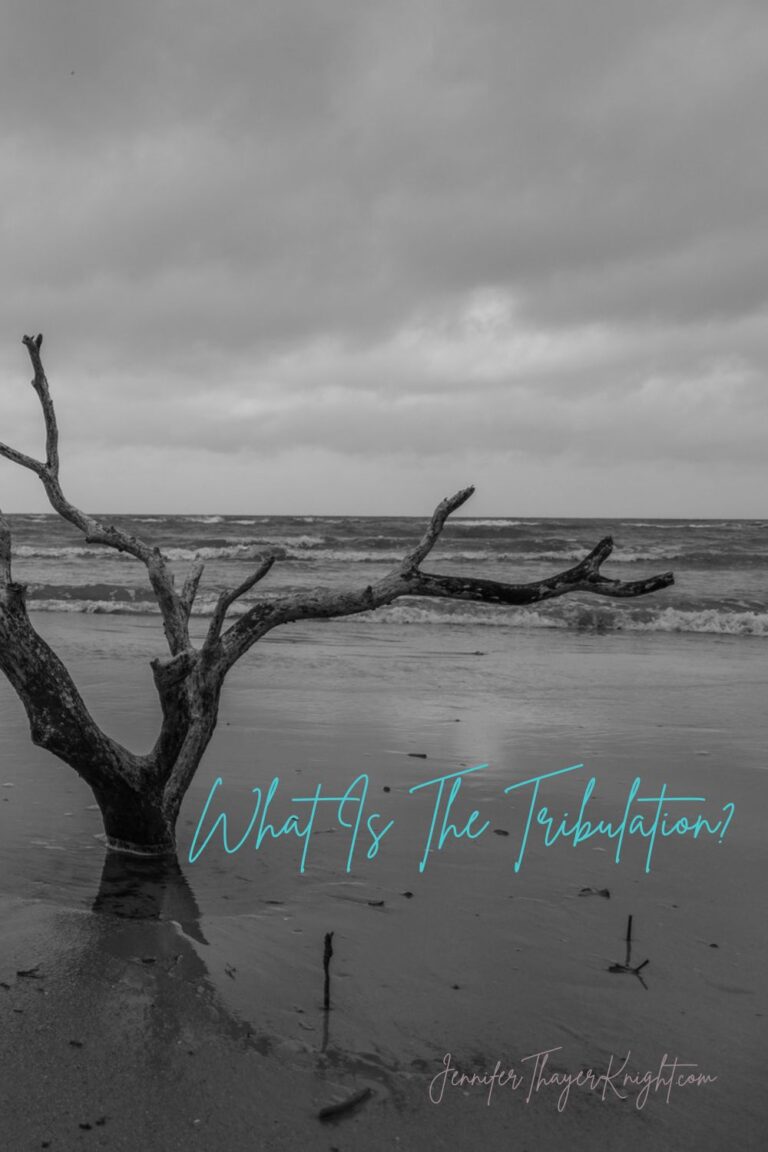
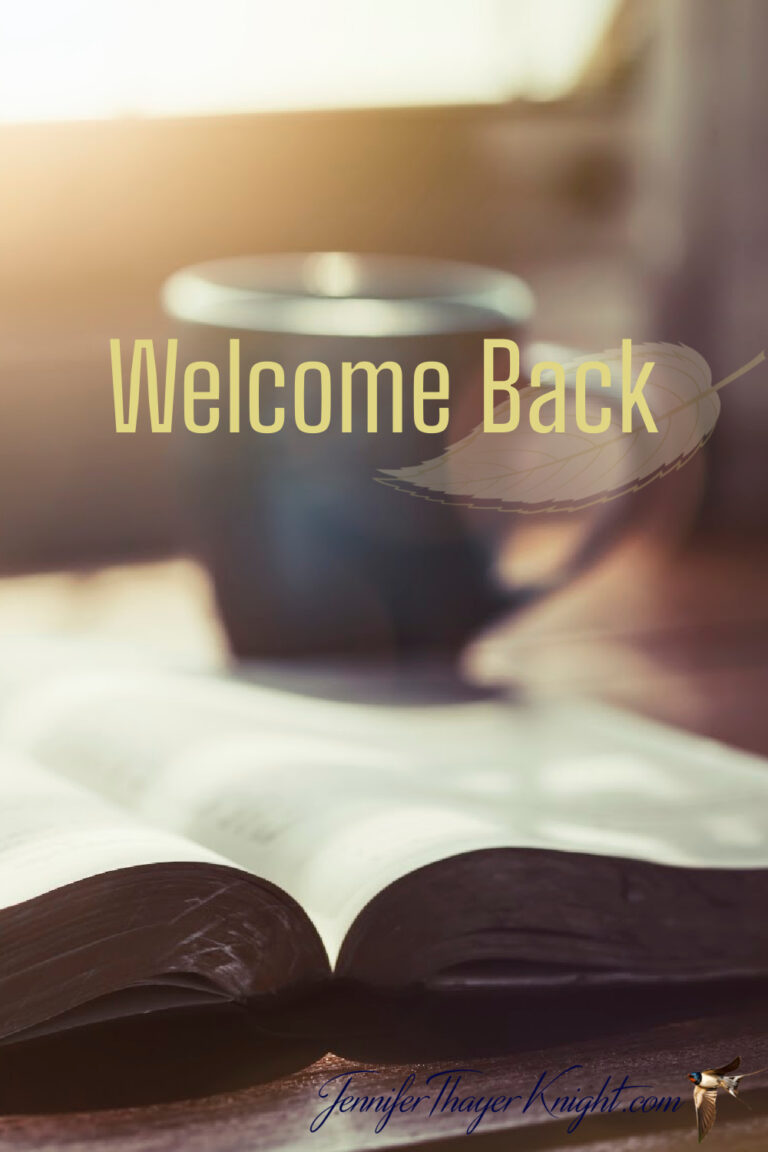


The loss of a loved one brings greif that we think will never end. And it doesn’t. But God still sends us comfort and we begin to recognize that we can go on. This sentence in your message brings hope, “Jeremiah knew that even in the darkest days of his life, there would still be a new beginning.” Thank you for your prayer. I needed your prayers today.
Lamentations 3: 22-23 has carried me in my early grief and continues to be a consolation and truth to live in every day. God keeps His promises to comfort, gives me personal mercies, and is faithful always. Thanks for elaborating on one of my favorite passages,
Wonderful and encouraging post, Jennifer.
I especially loved, “The Yod teaches us to look heavenward. Jeremiah reminds us our hope is in God. When the world feels chaotic, if we look heavenward, we will find the unfailing love of God.” Such a sweet reminder to look heavenward and to resist focusing on heaviness and grief. Our hope is in the Lord.
Precious verses. Thank you for reminding me of Lamentations 3:22-23.
Beautifully written and so encouraging Jennifer. In my grief, my Lord is the only place I can go because He fully knows my heart.
What beautiful hope you’ve brought out of the Scriptures. Thank you, Jen!
Thank you for sharing this beautiful truth. Your life, too, exemplifies the promise that God brings beauty from one’s brokenness, purpose to pain.